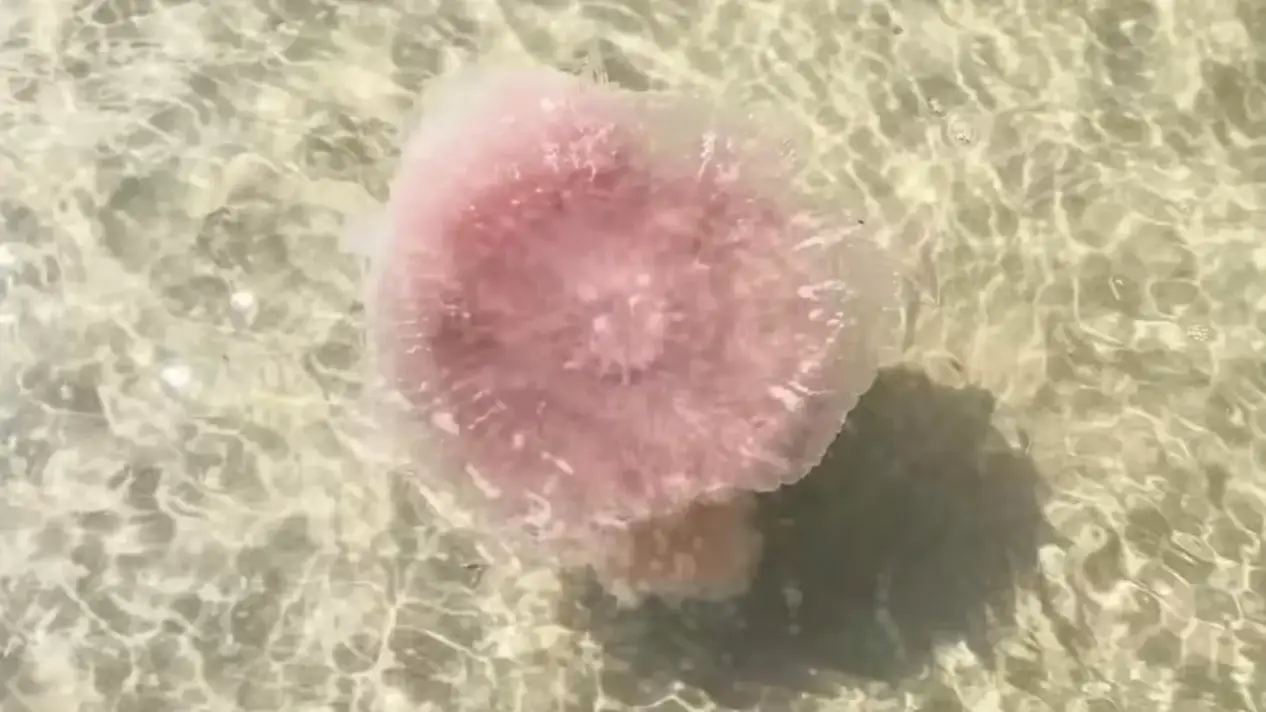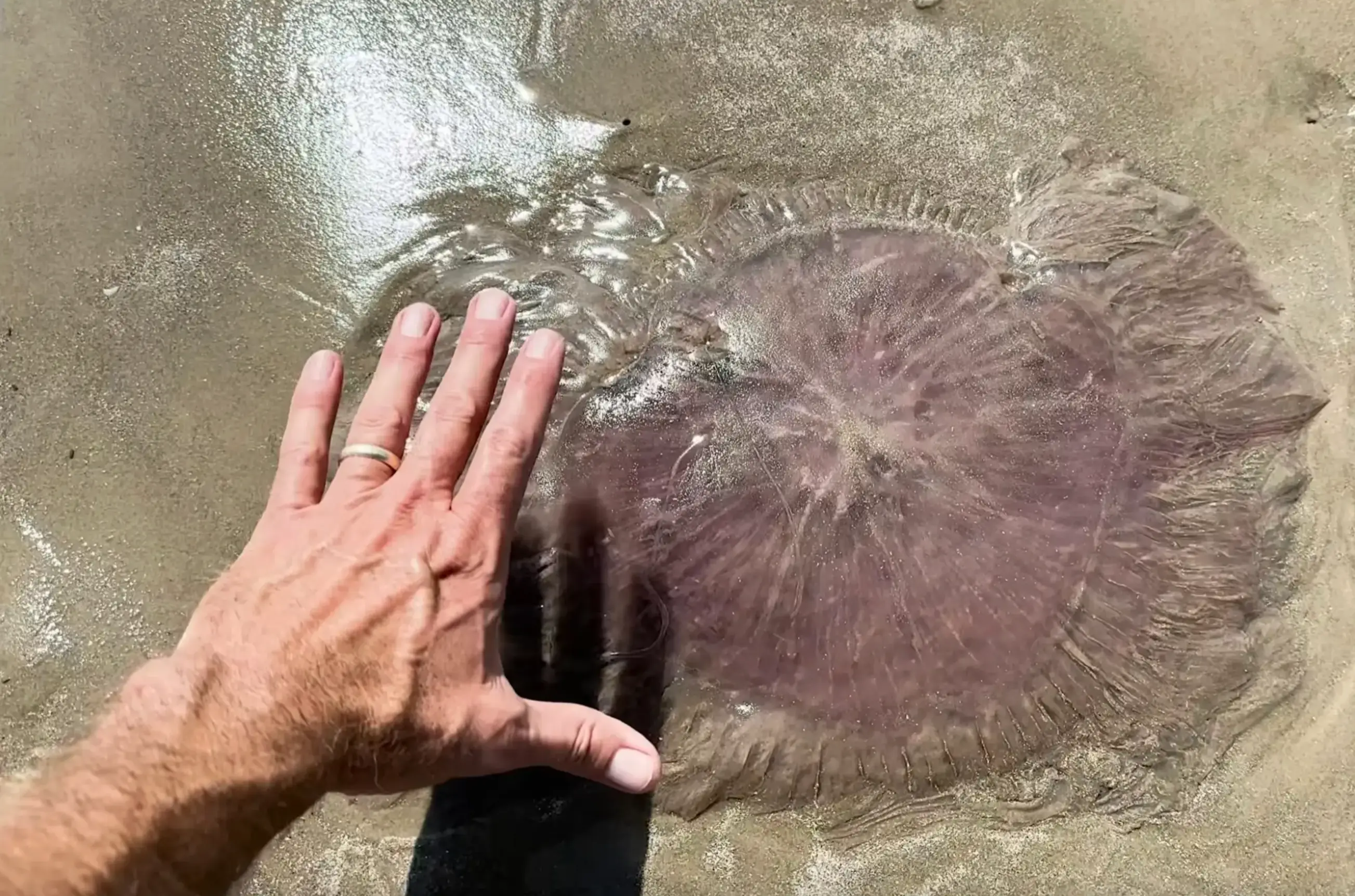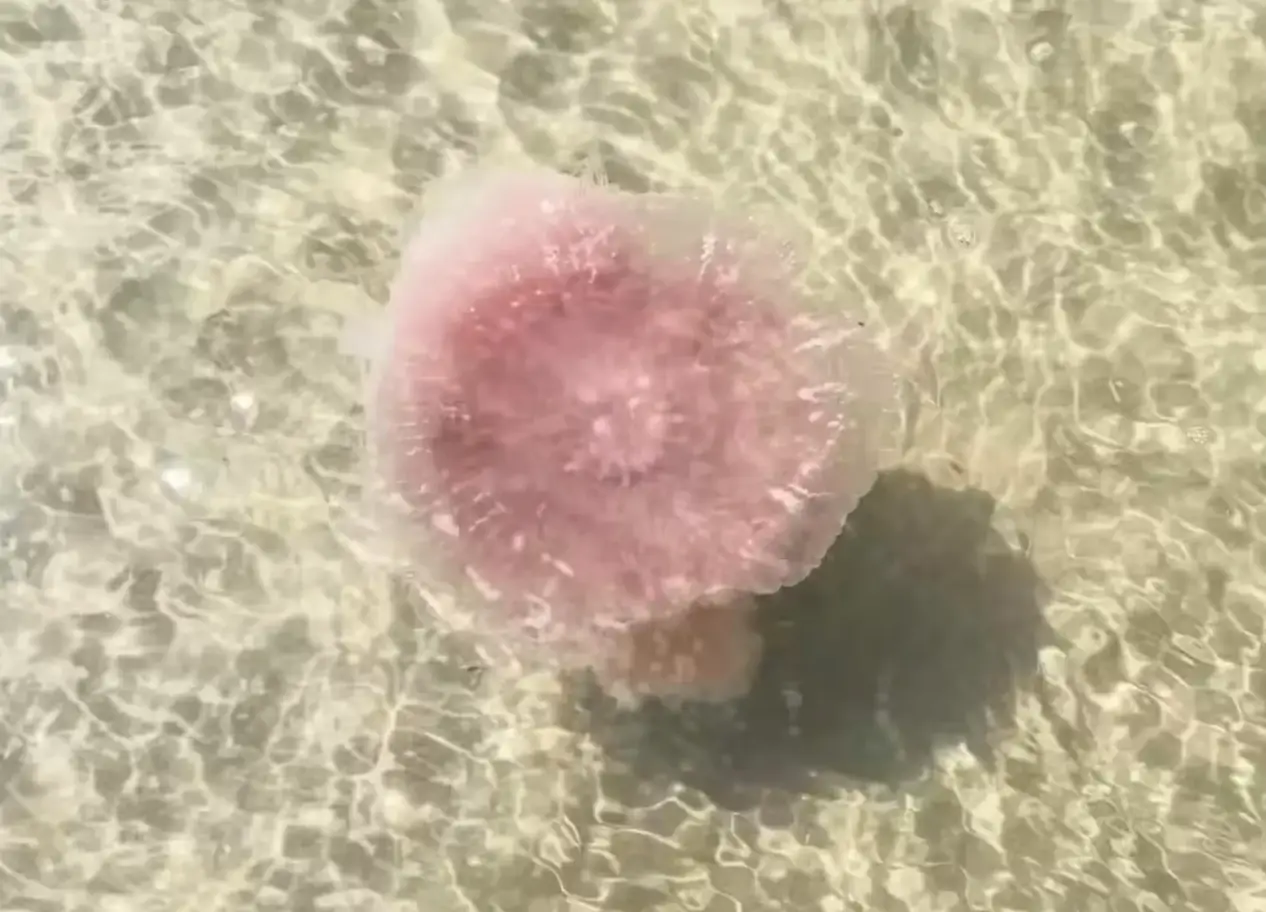
A number of huge pink jellyfish washed ashore on the coast of Texas this week and people don't know if they should be terrified or not.
It's said that beachgoers were taken aback by the ghastly sight, as the creature with 70 feet long tentacles was spread across the American beach.
Reports say that at least 10 of this species of jellyfish washed up on the same 10-mile stretch of beach, even gaining the nickname 'pink meanies' for their colour and appearance.
According to the director of community engagement at Harte Research Institute, Jace Turnell, the species known as Drymonema larsoni have started to appear in the same areas, with these jellyfish sometimes weighing up to 50lbs at their heaviest, as the pink meanies' last sighting was also along the Gulf of Mexico albeit in 2000.
Advert

Speaking to Chron, she opened up on the alien-looking creatures which have started to appear in numbers on the coast.
They were only confirmed as a new species of jellyfish in 2011, 90 years since the last new jellyfish was confirmed.
Tunnell explained that at this time of year, the pink meanies move from Texas' Gulf Coast to prey on moon jellyfish, which are far smaller (two to 40cm in diameter) than them, while also being the most common jellyfish in the region.
It's the food chain on full display, with moon jellies following the current to slurp up plankton, before the pink meanies ingest their smaller cousins themselves.
Apparently they cover them in their long 'oral arms' which create digestive juices to break them down, though it's said that the large jellyfish don't live for long at all.
Without a reliable food source, they are at risk of death, with the species also being sensitive to environmental alterations, as Tunnell added: “If there’s no moon jellies, they die off real quick. If the water gets cold, they die off real quick. So to be able to see them is pretty rare.”

They may be massive in size, but the marine life expert said that their stings cause a pain rated at around 'two out of 10', far less than victims have reported from other species in the past.
Tunnell continued, advising if you're stung to 'use vinegar to try to remove some of the tentacles off of you and remove some of the sting'.
For anyone thinking about it, the expert said that these jellyfish are not fit to eat, and that they usually evaporate when washed ashore or get eaten quickly by birds.
Since their first sighting in 2000, they have been recorded not just in the Gulf, but in the Mediterranean and off the coast of South Africa.